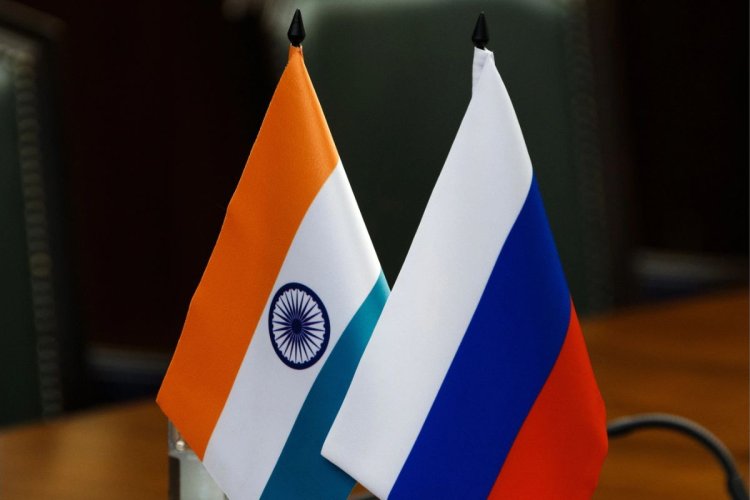Russia Visa Free Entry: Upcoming Negotiations with India in June
Learn about the upcoming negotiations between Russia and India on a bilateral agreement for visa-free travel, set to begin in June. Discover the objectives, steps involved, potential challenges, and future implications of this significant development.

Russia Visa-Free Entry: Upcoming Negotiations with India
In an effort to bolster bilateral relations and facilitate travel between their citizens, Russia and India are set to initiate negotiations on a bilateral agreement for visa-free travel. This significant development was recently announced by a Russian minister, with discussions scheduled to commence next month, in June.
Russia and China launched a visa-free group tourist exchange on August 1, 2023, as part of an intergovernmental agreement. In addition, from August 1, a visa-free group tour exchange between Russia and Iran was also launched. The Russian minister also said Moscow and New Delhi are seriously working on a plan to send visa-free tourist groups to each other’s country and boost tourism ties, an RT News report said.
Background of the Initiative
The proposal for visa-free travel between Russia and India has been in the pipeline for some time, driven by mutual interests in enhancing tourism, business, and cultural exchanges. Both nations have a long history of diplomatic relations, characterized by strategic partnerships and cooperative agreements in various sectors, including defense, energy, and trade.
Current Visa Requirements
As of now, Indian citizens traveling to Russia are required to obtain a visa, which involves a comprehensive application process including providing travel documentation, proof of accommodation, and sometimes an invitation letter. Similarly, Russian citizens visiting India must also secure a visa before their journey. This bureaucratic process can sometimes deter potential travelers and limit spontaneous travel plans.
Objectives of the Bilateral Agreement
The primary aim of the proposed visa-free travel agreement is to simplify the process for citizens of both countries, thus encouraging more frequent travel and stronger people-to-people connections. Key objectives include:
1. Boosting Tourism: By eliminating visa requirements, both countries hope to see a significant increase in tourist numbers. This is expected to benefit local economies, especially in the hospitality and service industries.
2. Enhancing Business Relations: Easier travel can lead to more business exchanges and collaborations. Entrepreneurs, investors, and professionals from both nations will find it easier to explore opportunities, attend meetings, and establish partnerships.
3. Strengthening Cultural Ties: Visa-free travel will facilitate greater cultural exchanges, including academic collaborations, artistic endeavors, and more frequent cultural events.
Steps Involved in the Negotiation Process
The negotiation process for establishing a visa-free travel agreement involves several key steps:
1. Preliminary Consultations: Initial discussions between the foreign ministries and relevant authorities of both countries to outline the framework of the agreement.
2. Drafting the Agreement: Legal and diplomatic teams will work on drafting the terms of the agreement, ensuring that it is mutually beneficial and addresses security concerns.
3. Approval and Ratification: Once a draft is agreed upon, it will be subject to approval by the respective governments and legislative bodies. This process may involve reviews and amendments before final ratification.
4. Implementation: Following ratification, both countries will implement the necessary administrative and logistical changes to facilitate visa-free travel. This includes updating immigration systems and informing the public about the new regulations.
Potential Challenges
While the prospect of visa-free travel is promising, there are several challenges that both nations need to address:
1. Security Concerns: Ensuring that visa-free travel does not compromise national security is paramount. Measures will need to be implemented to monitor and manage cross-border movement effectively.
2. Reciprocal Arrangements: The agreement must be reciprocal, with both countries offering equal privileges to each other’s citizens.
3. Infrastructure Readiness: Adequate infrastructure must be in place to handle the anticipated increase in travel. This includes airport facilities, immigration counters, and security protocols.
4. Public Awareness: Educating citizens about the new travel regulations and processes will be essential to ensure a smooth transition.
Implications for the Future
The successful implementation of a visa-free travel agreement between Russia and India could set a precedent for similar agreements between other countries, fostering global mobility and cooperation. It could also significantly contribute to the strategic partnership between the two nations, opening new avenues for collaboration and mutual growth.
In conclusion, the initiation of negotiations for a visa-free travel agreement between Russia and India marks a significant step towards strengthening bilateral relations. As discussions begin in June, both countries will be working diligently to create a framework that facilitates easier travel while ensuring security and reciprocity. This move is expected to have far-reaching positive impacts on tourism, business, and cultural exchanges, further solidifying the ties between these two great nations.
















